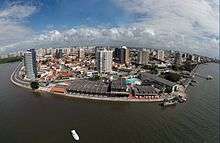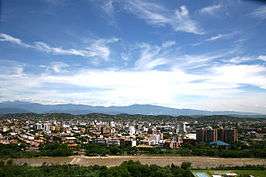List of cities in South America
This is a list of cities in South America.
Largest cities
This list includes all South American cities with a population within city limits exceeding 500,000 according to official census figures, estimates or projections as of 2015, the most recent year for which official population census results, estimates or short-term projections are available for all of these cities. These figures do not reflect the population of the urban agglomeration or metropolitan area which typically do not coincide with the administrative boundaries of the city. All figures refer to the mid-2015 population.
Countries
- List of cities in Argentina
- List of cities in Bolivia
- List of cities in Brazil
- List of cities in Chile
- List of cities in Colombia
- List of cities in Ecuador
- List of cities in Guyana
- List of cities in Paraguay
- List of cities in Peru
- List of cities in Suriname
- List of cities in Uruguay
- List of cities in Venezuela
Territories
See also
- List of Latin American cities by population
- Demographics of South America
- Lists of cities
- Cities of present-day nations and states
Notes
- ↑ Population projection is that of Lima Province and not the Lima Metropolitan Area.
- 1 2 3 4 5 6 7 8 9 10 Population projections for Colombian cities are that of the cabecera municipal (municipal seat).[3]
- ↑ Population projection is that of Santiago Province.
- ↑ Population projection is that of the Metropolitan District of Caracas, which comprises the municipalities of Libertador, Chacao, Baruta, Sucre and El Hatillo.
- ↑ Population projection is that of Montevideo Department.
- ↑ Population projection is that of the Constitutional Province of Callao.
- ↑ INEI defines the city of Arequipa as comprising the districts of Arequipa, Alto Selva Alegre, Cayma, Cerro Colorado, Jacobo Hunter, Mariano Melgar, Miraflores, Paucarpata, Sabandía, Sachaca, Socabaya, Tiabaya, Yanahuara and José Luis Bustamante y Rivero.[13]
- ↑ INEI defines the city of Trujillo as comprising the districts of Trujillo, El Porvenir, Florencia de Mora, La Esperanza and Víctor Larco Herrera.[13]
- ↑ INEI defines the city of Chiclayo as comprising the districts of Chiclayo, José Leonardo Ortíz, La Victoria and Pimentel.[13]
References
- 1 2 3 4 5 6 7 8 9 10 11 12 13 14 15 16 17 18 19 20 21 22 23 24 25 26 27 28 29 30 31 32 33 34 35 36 37 38 39 40 41 "ESTIMATIVAS DA POPULAÇÃO RESIDENTE NOS MUNICÍPIOS BRASILEIROS COM DATA DE REFERÊNCIA EM 1º DE JULHO DE 2015" (PDF). IBGE. 2016-02-11. Retrieved 2016-04-23.
- 1 2 "Cuadro Nº 11. Perú: Población total al 30 de junio, por grupos quinquenales de edad, según departamento y provincia, 2015". Perú: Estimaciones y Proyecciones de Población total y edades quinquenales, según Departamento, Provincia y Distrito, 2005-2015. INEI. November 2010. Retrieved 2016-04-23.
- ↑ "Conceptos básicos" (PDF). DANE. 2011-05-12. Retrieved 2015-06-11.
- 1 2 3 4 5 6 7 8 9 10 "ESTIMACIONES DE POBLACIÓN 1985 - 2005 Y PROYECCIONES DE POBLACIÓN 2005 - 2020 TOTAL MUNICIPAL POR ÁREA". DANE. 2011-05-12. Retrieved 2016-04-23.
- 1 2 "Comunas: Actualización Población 2002-2012 y Proyecciones 2013-2020". Instituto Nacional de Estadísticas. Retrieved 2016-04-23.
- 1 2 3 4 5 6 "Proyección de la población al 30 de junio con base al censo 2011, según entidad federal y municipios, 2000-2050". Instituto Nacional de Estadística. Retrieved 2016-04-23.
- ↑ "Población estimada al 1 de julio de cada año calendario por sexo, según comuna. Ciudad Autónoma de Buenos Aires. Años 2010-2025". INDEC. Retrieved 2016-04-23.
- 1 2 3 "Proyección de la Población Ecuatoriana, por años calenario, según cantones 2010-2020". Instituto Nacional de Estadística y Censos. Retrieved 2016-04-23.
- 1 2 3 4 "CUADRO Nº 3. BOLIVIA: PROYECCIONES DE POBLACIÓN, SEGÚN DEPARTAMENTO Y MUNICIPIO, 2012-2020". PROYECCIONES DE POBLACIÓN E INDICADORES DEMOGRÁFICOS, POR AÑOS CALENDARIO, 2012-2020. INE. 2014. Retrieved 2016-04-25.
- ↑ "Población estimada al 1 de julio de cada año calendario por sexo, según departamento. Provincia de Córdoba. Años 2010-2025". INDEC. Retrieved 2016-04-23.
- ↑ "Poblaciones Estimadas y Proyectadas por Sexo y Edad según Departamentos: Período 1996-2025.". Instituto Nacional de Estadística. Retrieved 2016-04-23.
- ↑ "Indicadores demográficos". Municipalidad de Rosario. Retrieved 2016-04-23.
- 1 2 3 "PERÚ: LISTADO DE DISTRITOS QUE CONFORMAN LAS CIUDADES PRINCIPALES, SEGÚN DEPARTAMENTO". Perú: Estimaciones y Proyecciones de Población total y edades quinquenales, según Departamento, Provincia y Distrito, 2005-2015. INEI. November 2010. Retrieved 2016-04-23.
- 1 2 3 "Perú: Estimaciones y proyecciones de población total por sexo de las principales ciudades, 2012-2015". Perú: Estimaciones y Proyecciones de Población Total por Sexo, según Principales Ciudades, 2000-2015. INEI. March 2012. Retrieved 2016-04-23.
- 1 2 "Población estimada al 1 de julio de cada año calendario por sexo, según partido. Provincia de Buenos Aires. Años 2010-2025". INDEC. Retrieved 2016-04-23.
- ↑ "Población estimada al 1 de julio de cada año calendario por sexo, según partido. Provincia de Salta. Años 2010-2025". INDEC. Retrieved 2016-04-23.
- ↑ "Población estimada al 1 de julio de cada año calendario por sexo, según partido. Provincia de Tucumán. Años 2010-2025". INDEC. Retrieved 2016-04-23.
- ↑ "Cuadro 1: Paraguay. Población nacional estimada y proyectada, según sexo, departamento, y distrito, 2000-2025". Paraguay. Proyección de la población por sexo y edad, según distrito, 2000-2025. Revisión 2015 (PDF) (Report). Dirección General de Estadística, Encuestas y Censos. October 2015. p. 32. Retrieved 2016-04-24.
This article is issued from Wikipedia - version of the 11/29/2016. The text is available under the Creative Commons Attribution/Share Alike but additional terms may apply for the media files.
.jpg)





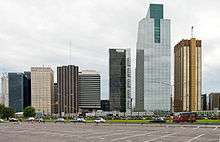
.jpg)
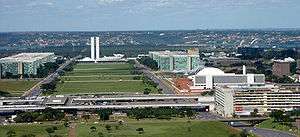






_-_Recife_-_Pernambuco_-_Brasil.jpg)

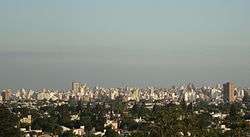




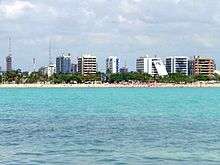

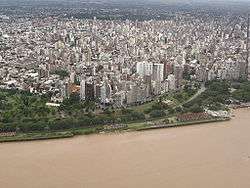

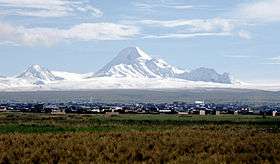

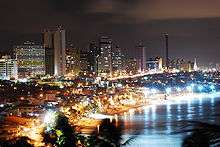
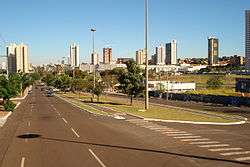
.jpg)

.jpg)
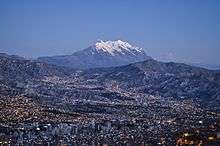
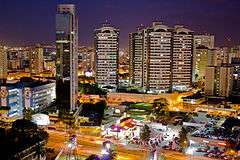
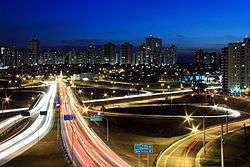
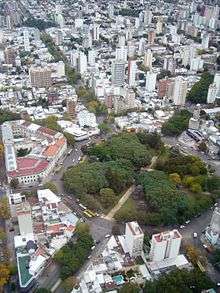
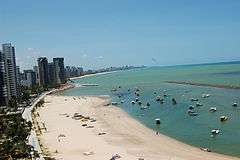

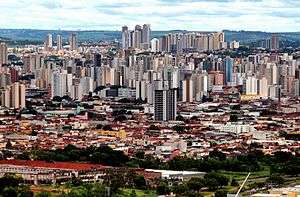


.jpg)

